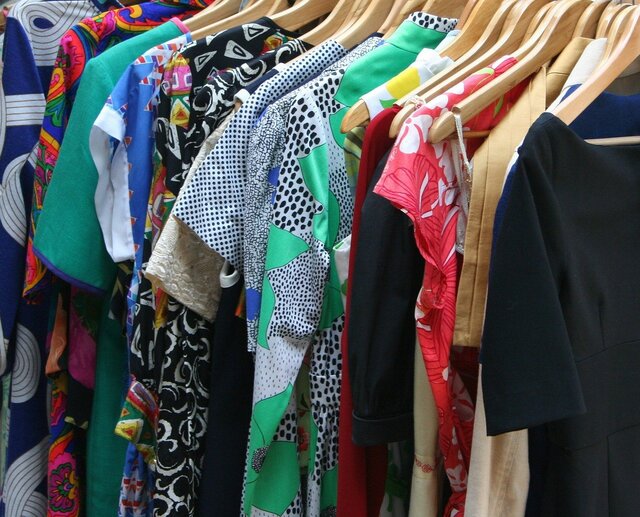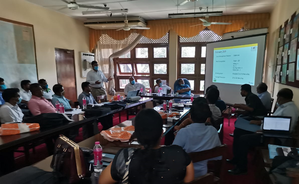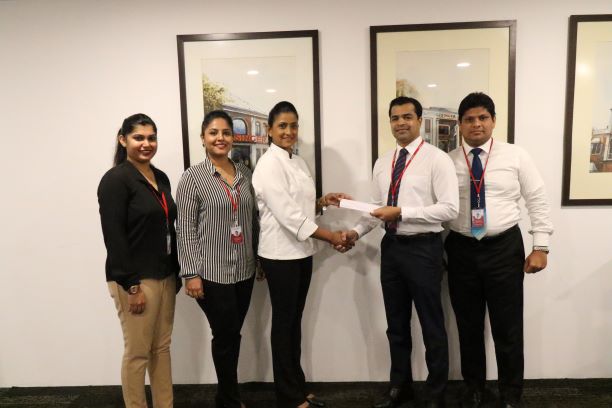The apparel industry will need to get stronger as in the year 2022 things are not going to get any easier.
The Sri Lankan apparel industry displayed amazing resilience back in 2021, in spite of having faced down another turbulent year, and the industry believes that the advances they have made over the past year have put the entire sector in a much stronger position to face the soaring challenges of 2022. An analysis of the data from 2021 and the measures that firms in the industry have taken show how the industry is poised.
Following in the wake of unparalleled economic disruptions for the country and the whole world, which was caused by the second and third waves of the COVID-19 pandemic, now we see some persistent unpredictability around prospects for 2022. Driving this instability so far is the surfacing of Omicron which is reportedly the most highly contagious variant of COVID-19 and in the backdrop of rising geopolitical pressures between the US, China, and Russia. If any of these elements is made worse, additional disruptions to global trade are unavoidable.
Examine the export trade, back in 2019 before the pandemic, apparel exports added up to $5.2 billion, nearly 48 percent of all merchandise exports (which makes it a pivotal contributor to trade and external finances). The pandemic’s spread in 2020 led to a sharp drop in trade and travel, and eventually global GDP (Gross Domestic Product); no country was spared.
In 2020 Sri Lanka’s garment exports also dropped exceptionally; nationally imposed lockdowns hit production, and order cancellations were elevated. Exports fell by nearly a quarter (more than 24 percent) to $3.93 billion. Garment exports in 2021 climbed back up by 21.5 percent by the end of September to $3.54 billion, but they fell just short of the targeted $5.1 billion.
This remarkable progression was made possible by an expedited vaccination program with the support of the government and the logistical capability of the military. The Joint Apparel Associations Forum of Sri Lanka (JAAFSL), an apex body of apparel industry associations, played a pivotal coordinating role.
For business owners, worker safety is critical. Factories and places also set down safety protocols, redesigned shop floors to enable social distancing, strictly monitored masking, personal protection, and employee behavior. Compliance was strictly applied with surprising checks by officials from the Ministries of Labour and Health.
Yet, during the course of the pandemic back in 2020 and 2021, business owners were faced with false allegations that workers were not being paid and were instead being fired. But as events later showed, these allegations were completely baseless and ran opposite to the actual situation on the ground.
Initially, in collaboration with the government and represented by JAAFSL, workers who could not come to work because they were sick were paid LKR 14,500 a month whether they came to work or not. That was 45 percent more than the minimum salary authorized by law, even when they were not working.
Second, as mentioned earlier, an expedited vaccination programme was applied and acted upon. The safety of workers was ensured with strictly imposed mandated safety protocols. The implementation of the protocols were expanded even to non-direct apparel workers like canteen workers and other suppliers and vendors.
An important study was done on the impact of COVID-19 on the apparel industry and one number helps make the point, the study estimated the pre-pandemic workforce was at about 350,000. Then at the end of 2021, contrary to reports of dismissals and resignations made public by some parties during the pandemic, the workforce was back at 350,000.
That isn’t all, in the course of the pandemic, both big companies and smaller firms took on and adjusted technology to develop solutions to new issues. Think about samples, fashion alterations are fairly frequent, so buyers need samples that they test and then approve for manufacture. As transport was interrupted and flights were halted, some firms utilised 3D technologies that could be designed at the buyers’ end and approved.
That was just one time where technology was used innovatively to overcome logistical challenges. Several others are lined up with the vision of making Sri Lanka a worldwide hub for innovative apparel production. And the similar spirit of innovation is prevalent in the apparel industry’s sustainability programme that places a global benchmark for ethical, environmentally responsible manufacturing.
On the 23rd of Decemeber 2021, the indsutry took the next move in its importance on prioritizing workers. JAAFSL signed two historic deals with trade unions. The first joins both trade unions and factory owners to observe the pandemic’s effect together. Trade unions will be represented on the Bipartite Health Committees at each manufacturing plant.
The committees are in charge of carrying out Ministry of Health guidelines strictly. The MoU also identifies employees freedom of association and their rights to collective bargaining. The second MoU puts out the plans on how the employers and unions will work together to evaluate and coordinate their endeavors to handle the negative effect of the pandemic on all stakeholders. Both MoUs assign JAAFSL and the unions as partners in these attempts.
Notwithstanding flexibility, there is no place for self-satisfaction. The arrival of the Omicron variant – the most contagious type of COVID-19 so far – has displayed that the pandemic isn’t done as yet. JAAFSL is in talks with the government on ways to offer booster shots for workers – and perhaps their families – as fast as possible.
Making sure the retention of GSP+ benefits with the European Union (EU) and other leading trade partners is important. Prior to the emergence of COVID-19, it was likely that Sri Lanka would ‘graduate’ from the GSP+ government; the pandemic, nevertheless, altered that drastically. Now, keeping those benefits past December 2023 will be recommended forcefully and acutely.
Contrary to what Albert Einstein said, we need to both prevent and prepare for the next catastrophe.
About JAAF
The Joint Apparel Association Forum is the apex body which leads the Sri Lanka apparel towards its final goal of being the world’s number one apparel acquring destination. JAAF represents five associations that cover supply chain partners; the export-oriented apparel manufactures, buying offices and representatives of international brands in Sri Lanka.



